About Publications Library Archives
heritagepost.org

Preserving Revolutionary & Civil War History

Preserving Revolutionary & Civil War History

The Civil War Battle of Hampton Roads was the first engagement of ironclad warships, the USS Monitor nor the CSS Virginia. While neither side could claim victory, the battle demonstrated the viability of ironclad technology and provided a glimpse…
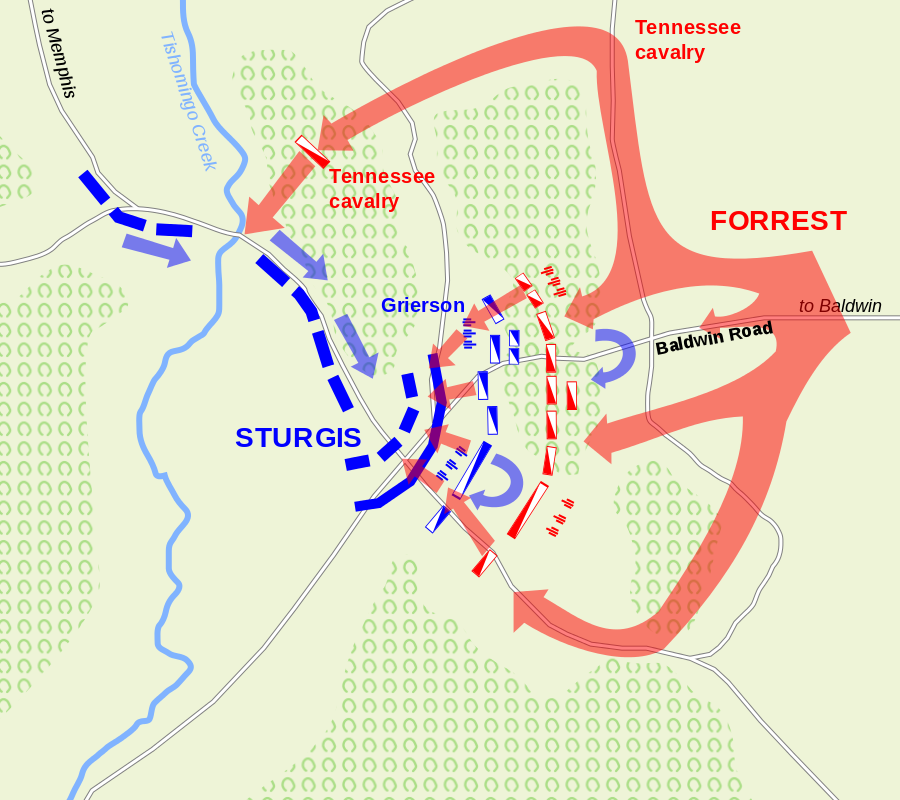
Battle Name Brice’s Crossroads Other Names Tishomingo Creek State Mississippi Location Prentiss County and Union County Campaign Forrest’s Defense of Mississippi Dates June 10, 1864 Principal Commanders Brig. Gen. Samuel D. Sturgis [US] ; Maj….

The Confederate attack during the second day of the Battle of Gettysburg overran the Union III Corps and, in one place, reached the crest of Cemetery Ridge. On July 2, the day of the Battle…
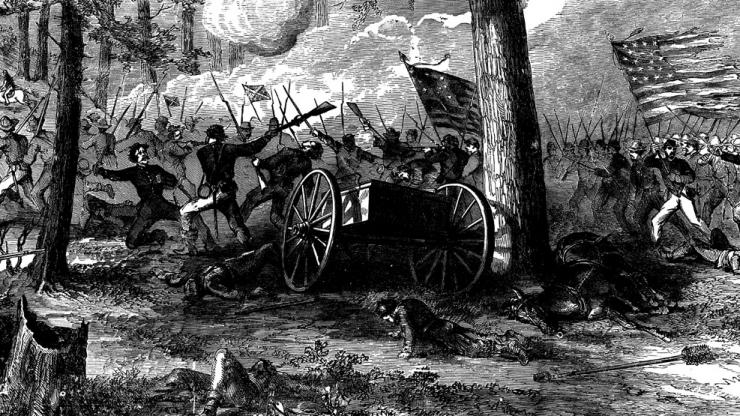
March 19-21, 1865 The Battle of Bentonville Following his March to the Sea, Union Maj. Gen. William T. Sherman drove northward into the Carolinas, splitting his force into two groups. Maj. Gen. Henry W. Slocum commanded the left wing,…
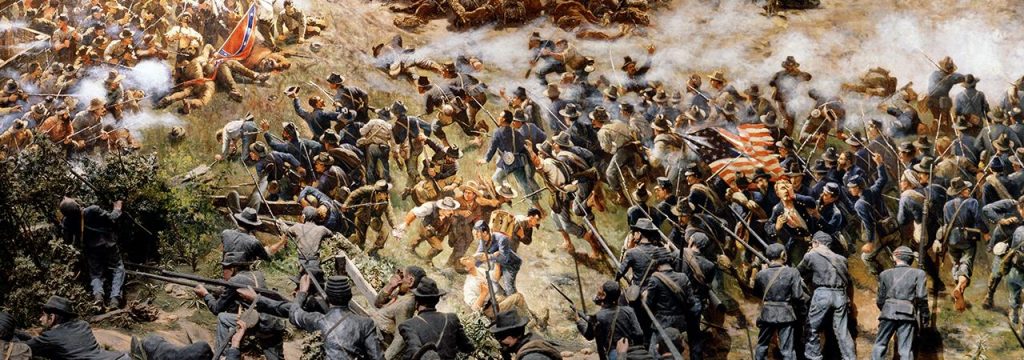
July 22, 1864 The Battle of Atlanta Bald Hill, Leggett’s Hill On July 21, 1864, Maj. Gen. William T. Sherman’s three armies were separated on the outskirts of Atlanta. Better yet for Confederate commander Lt. Gen. John…

Fought on March 23, 1862, the First Battle of Kernstown was the initial engagement of the Shenandoah Valley Campaign of 1862. The conflict was also Stonewall Jackson’s only defeat as commander of a large force…

Although Brig. Gen. Felix K. Zollicoffer’s main responsibility was to guard Cumberland Gap, in November 1861 he advanced west into Kentucky to strengthen control in the area around Somerset. He found a strong defensive position…

Along the banks of Stones River, just outside Murfreesboro, Tennessee occurred an often-overlooked battle during the New Year’s holiday of 1862-1863. Fought during miserable weather that saw bitterly cold rain and sleet, the three-day engagement…
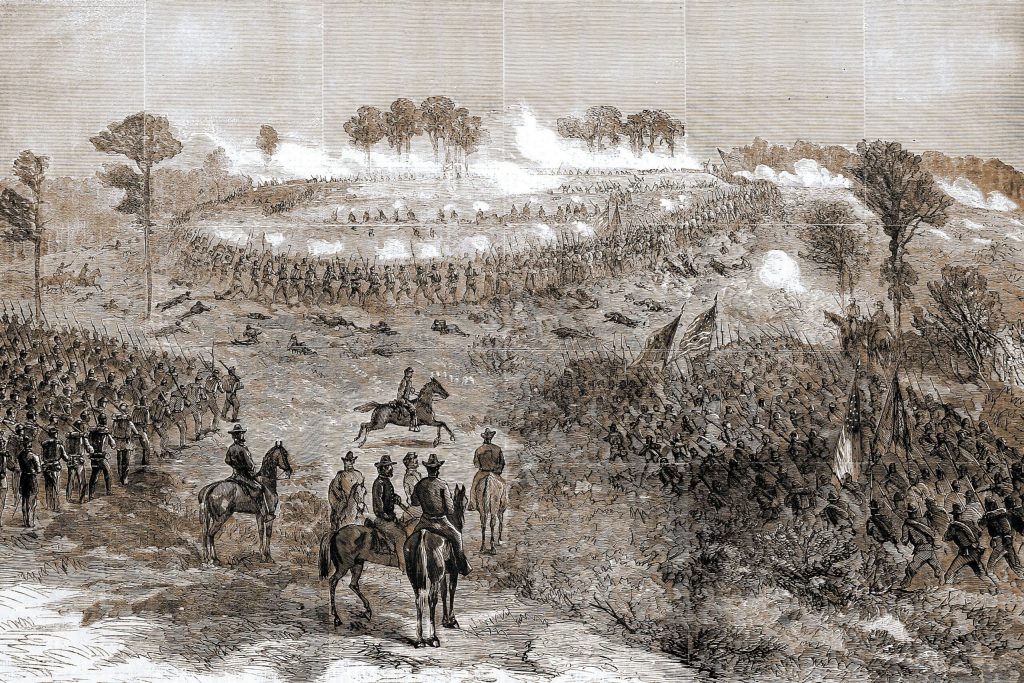
As the morning sun burned through the fog along the New Market Road about eight miles southeast of Richmond on the autumn morning of September 29, 1864, it revealed a scene of carnage and human…
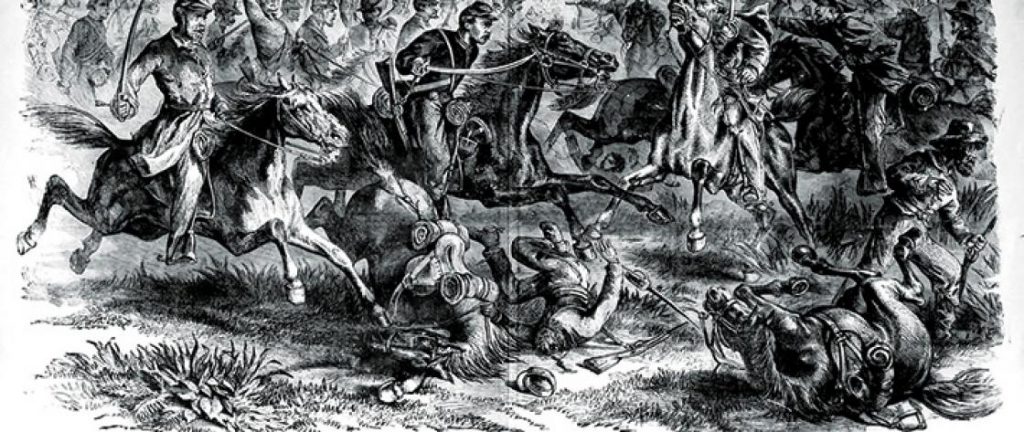
Though this battlefield has been lost to time, with effort, lingering traces of the ultimate Confederate cavalier’s last battle can still be found hidden in the Richmond suburbs.
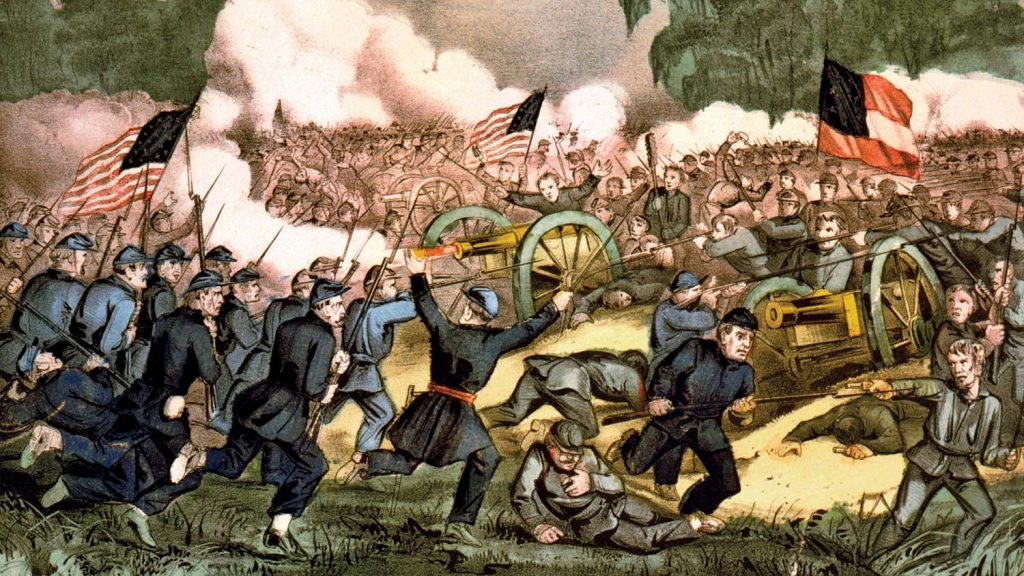
The Civil War was the culmination of a series of confrontations concerning the institution of slavery. The following is a timeline of the events that led to the Civil War.
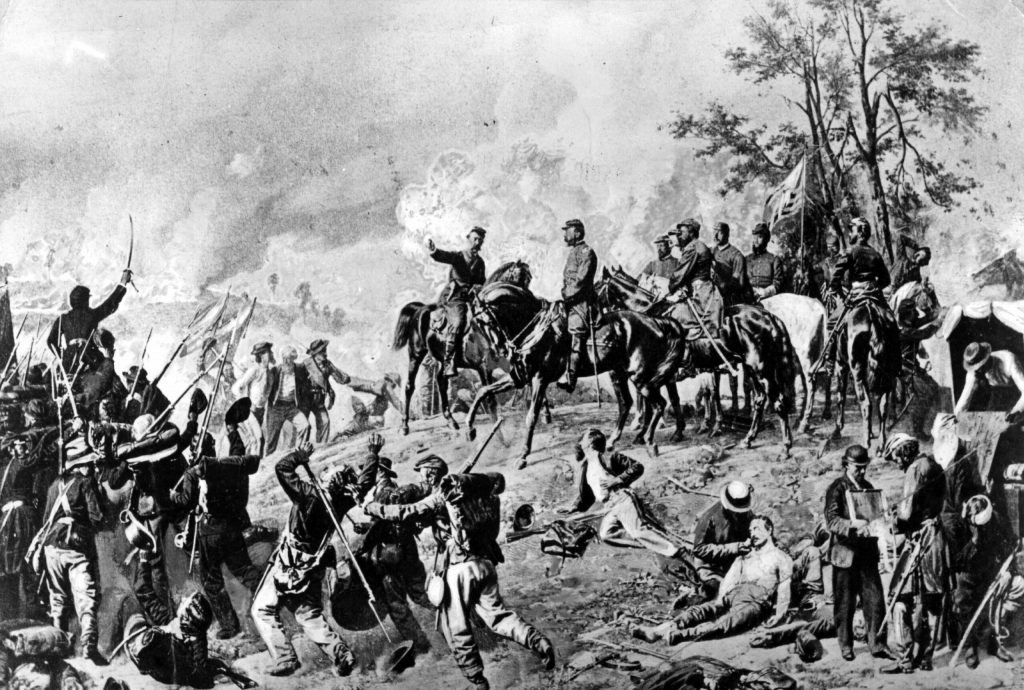
In the summer of 1863, Confederate Gen. Robert E. Lee launched his second invasion of the Northern states. Lee sought to capitalize on recent Confederate victories and defeat the Union army on Northern soil, which…
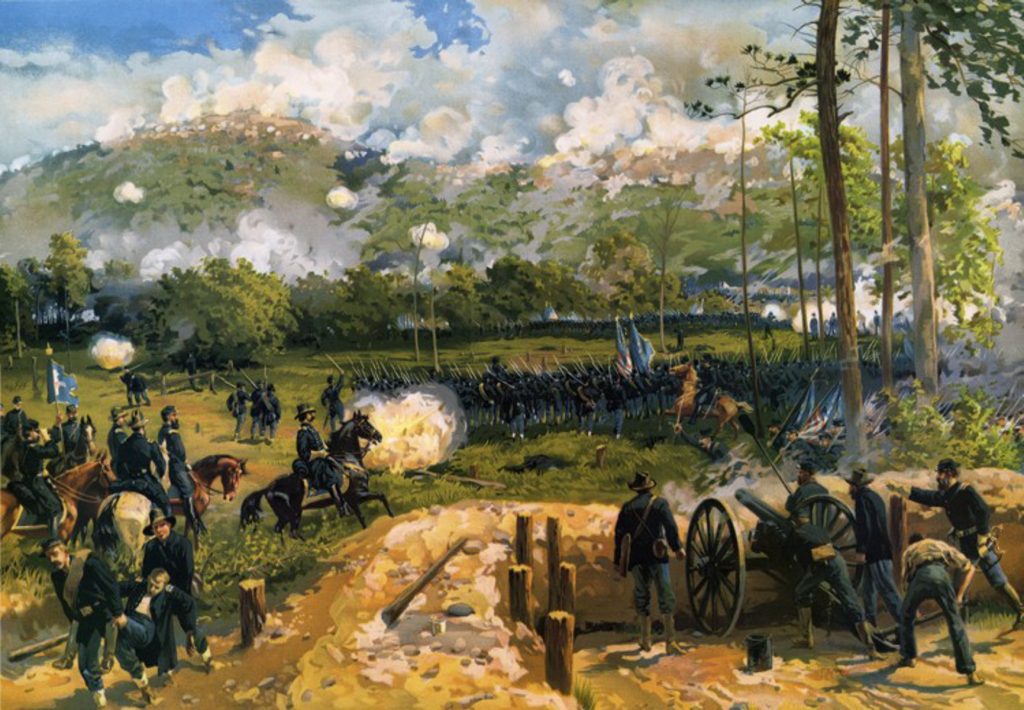
The battle of “Dead Angle,” was fought June 27th, on the Kennesaw line, near Marietta, Georgia.
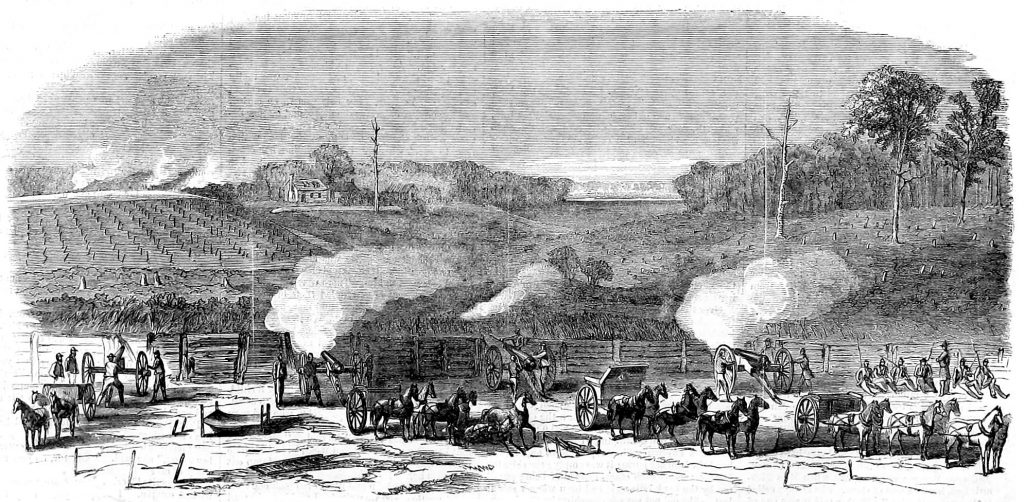
Fought on October 13, 1864, during the Petersburg Campaign, the Battle of Darbytown Road, also known as the Battle of Alms House, was a failed Union attempt to stop the construction of new defensive breastworks…
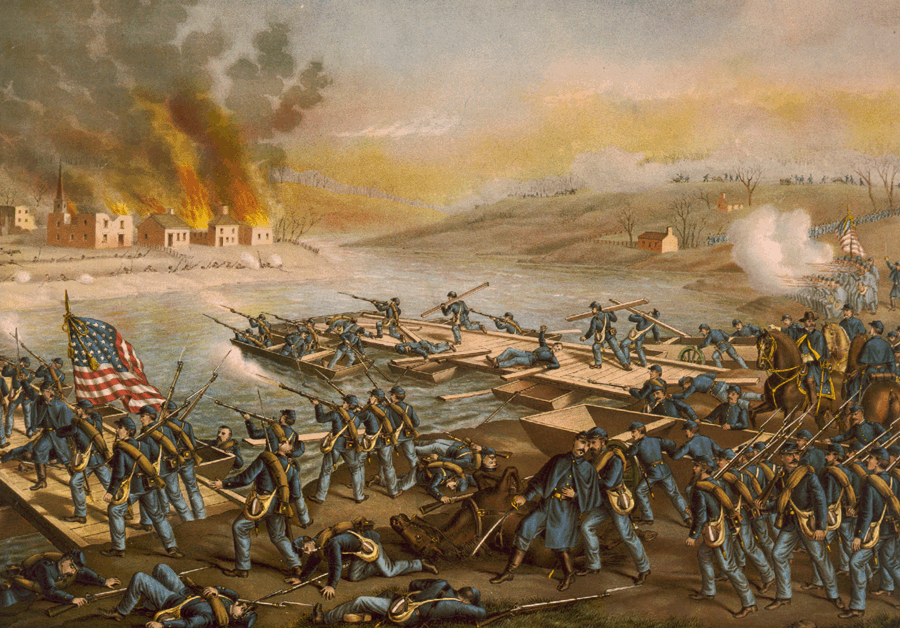
The Battle of Fredericksburg was fought December 11–15, 1862, in and around Fredericksburg, Virginia, in the Eastern Theater of the American Civil War. The combat, between the Union Army of the Potomac commanded by Maj. Gen. Ambrose E. Burnside and the Confederate Army of Northern Virginia under General Robert E….
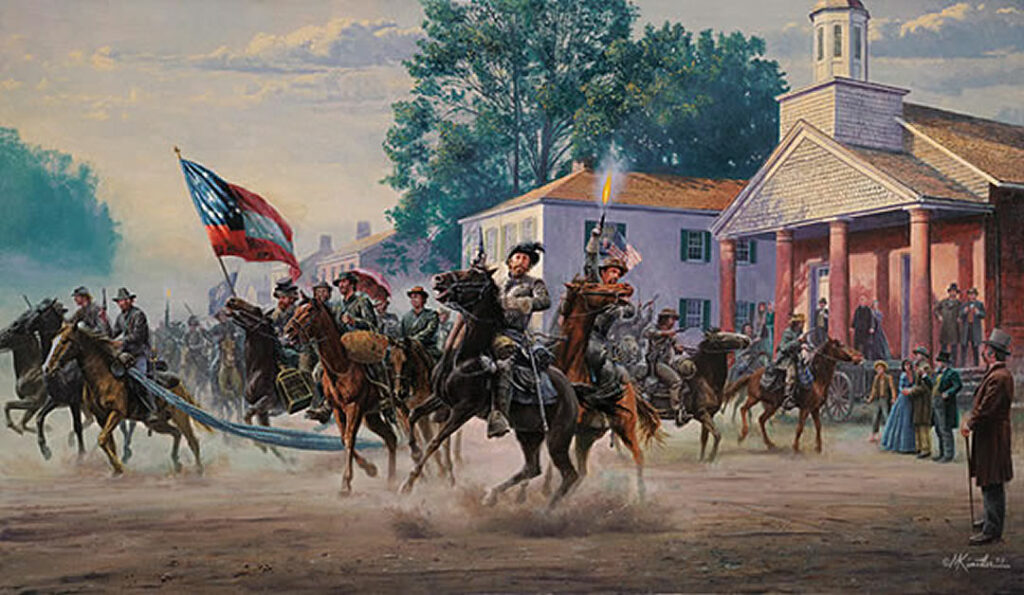
Morgan’s Raid was a diversionary incursion by Confederate cavalry into the northern (Union) states of Indiana, Kentucky, Ohio and, briefly, West Virginia, during the American Civil War.
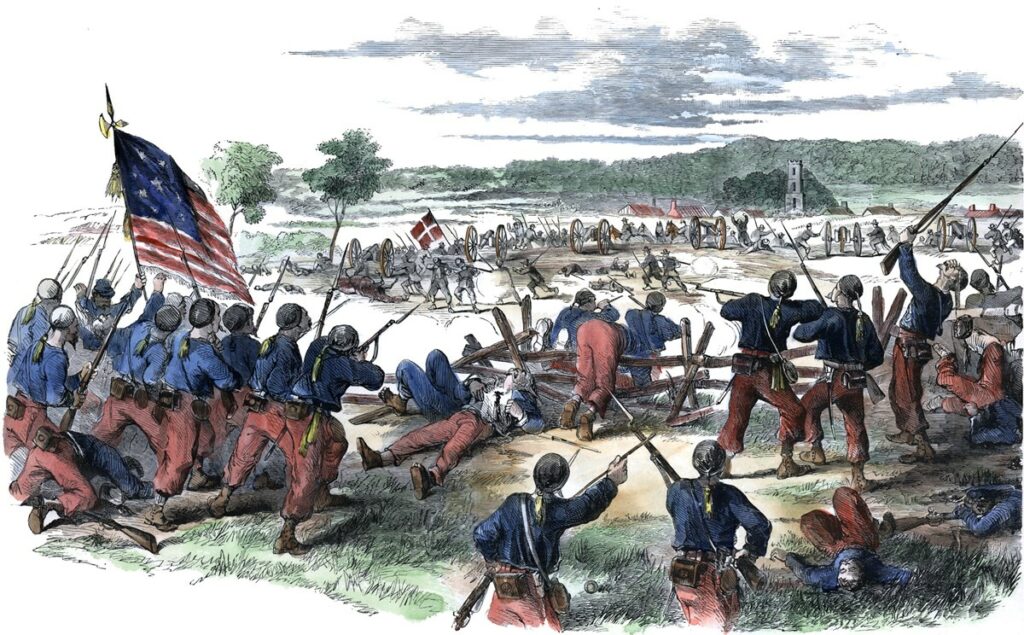
The Battle of Antietam /ænˈtiːtəm/ also known as the Battle of Sharpsburg, particularly in the South, fought on Wednesday, September 17, 1862, near Sharpsburg, Maryland, and Antietam Creek, as part of the Maryland Campaign

The Battle of Perryville (also known as the Battle of Chaplin Hills) was fought on October 8, 1862, in the Chaplin Hills west of Perryville, Kentucky, as the culmination of the Confederate Heartland Offensive (Kentucky…
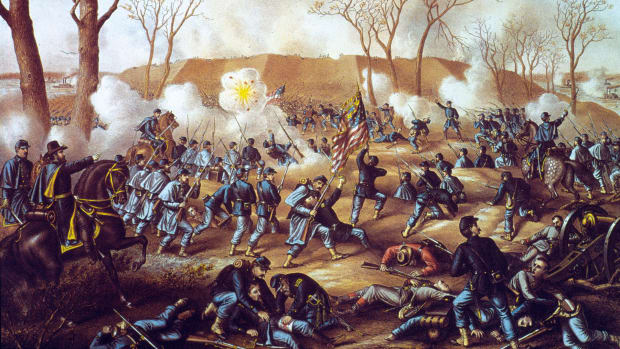
The Battle of Fort Pillow, also known as the Fort Pillow Massacre, was fought on April 12, 1864, at Fort Pillow on the Mississippi River in Henning, Tennessee, during the American Civil War. The battle ended with a massacre of Federal black…
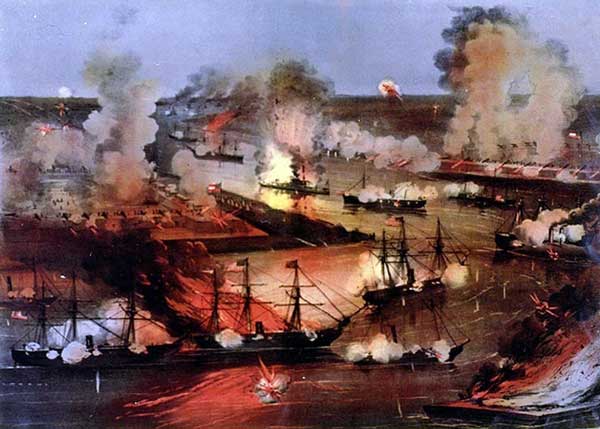
The Battle of Forts Jackson and St. Philip (April 18–28, 1862) was the decisive battle for possession of New Orleans in the American Civil War.

The Battle of Shiloh also known as the Battle of Pittsburg Landing, was a major battle in the Western Theater of the American Civil War, fought April 6 – 7, 1862, in southwestern Tennessee.
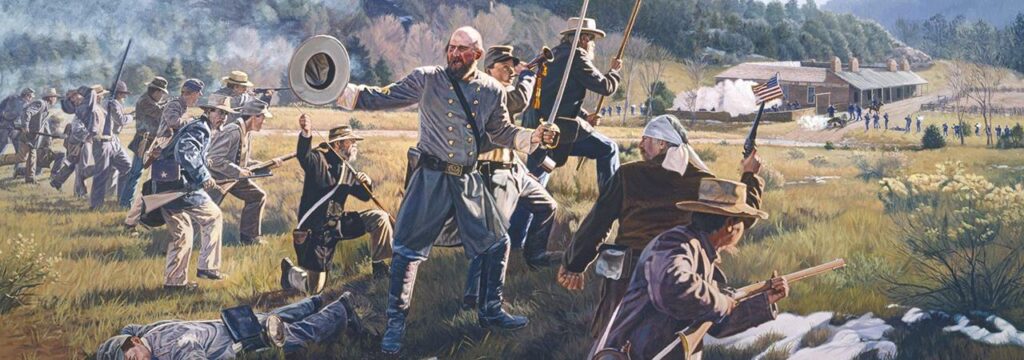
Dubbed the “Gettysburg of the West”, fought from March 26 to 28, 1862 in northern New Mexico Territory, was the decisive battle of the New Mexico Campaign during the American Civil War.
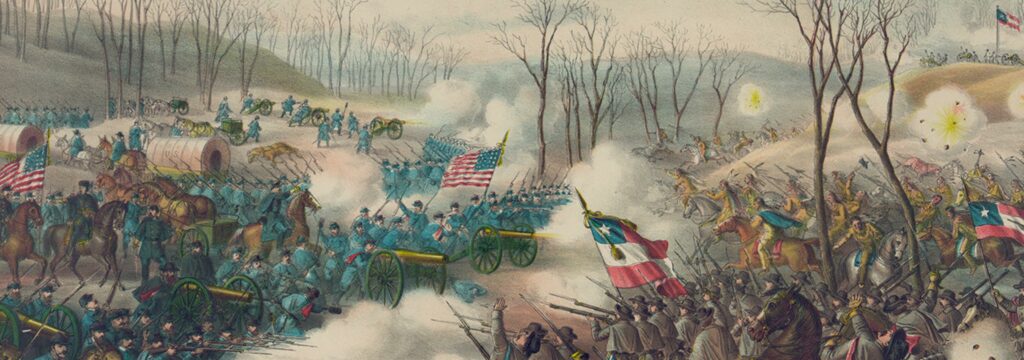
The Battle of Pea Ridge (also known as the Battle of Elkhorn Tavern) was a land battle of the American Civil War, fought on March 6–8, 1862, at Pea Ridge in northwest Arkansas, near Garfield.

The Battle of Island Number Ten was an engagement at the New Madrid or Kentucky Bend on the Mississippi River during the American Civil War, lasting from February 28 to April 8, 1862.
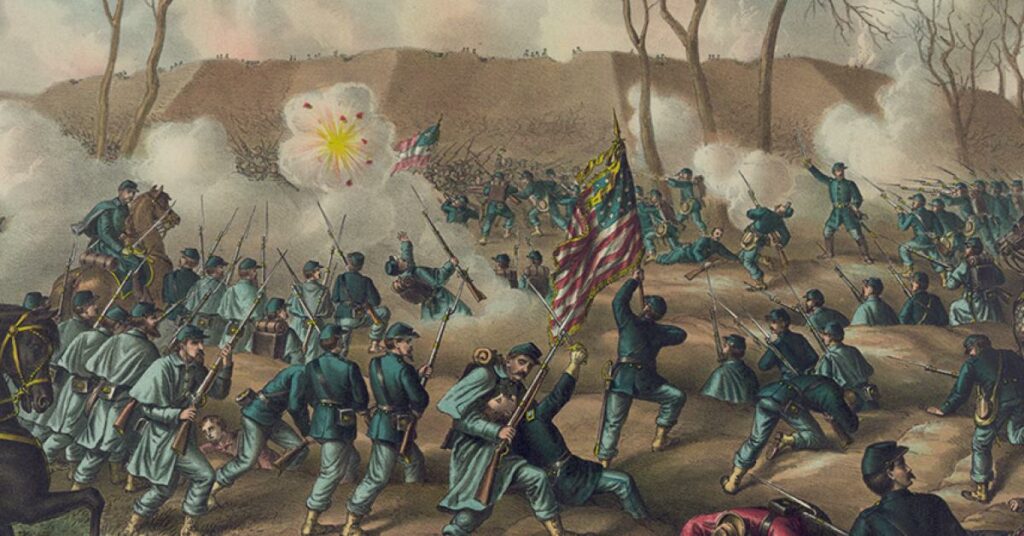
The Battle of Fort Donelson was fought from February 11 to February 16, 1862, in the Western Theater of the American Civil War.
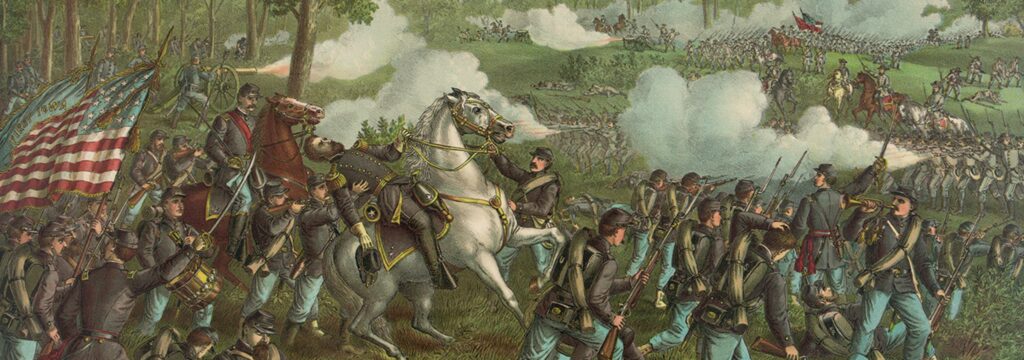
Fought on August 10, 1861, near Springfield, Missouri between Union forces and the Missouri State Guard, it is sometimes called the “Bull Run of the West.”
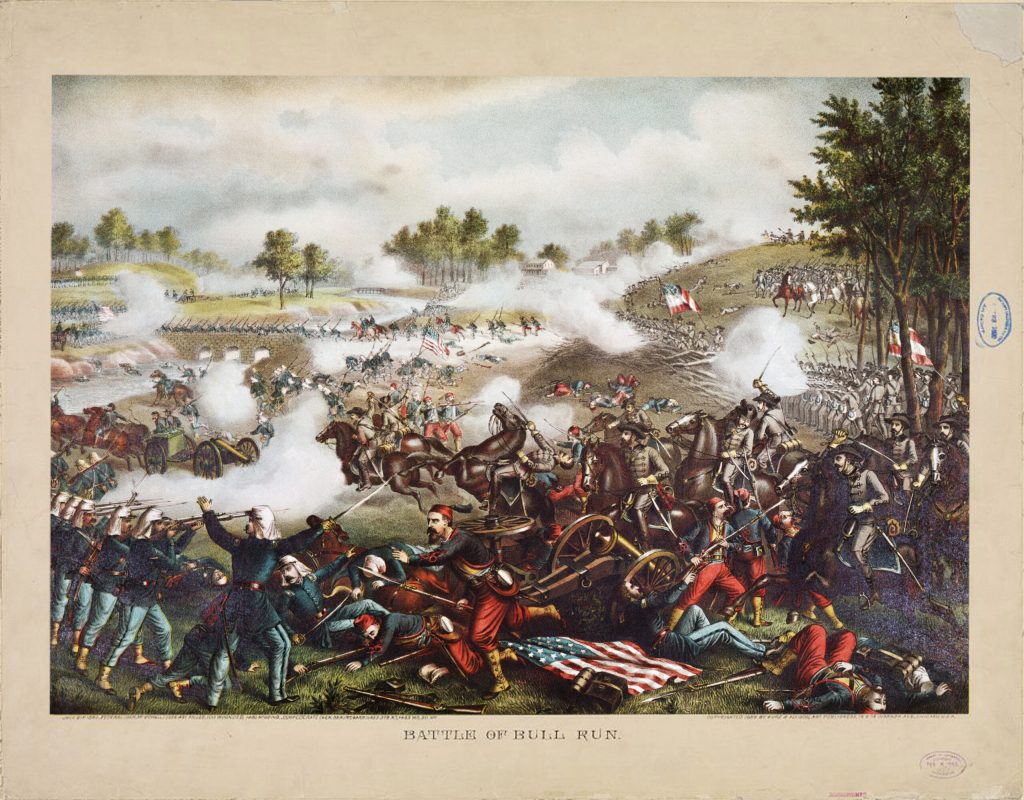
The First Battle of Bull Run, also known as First Manassas (the name used by Confederate forces), was fought on July 21, 1861, in Prince William County, Virginia, near the city of Manassas. It was the first major…
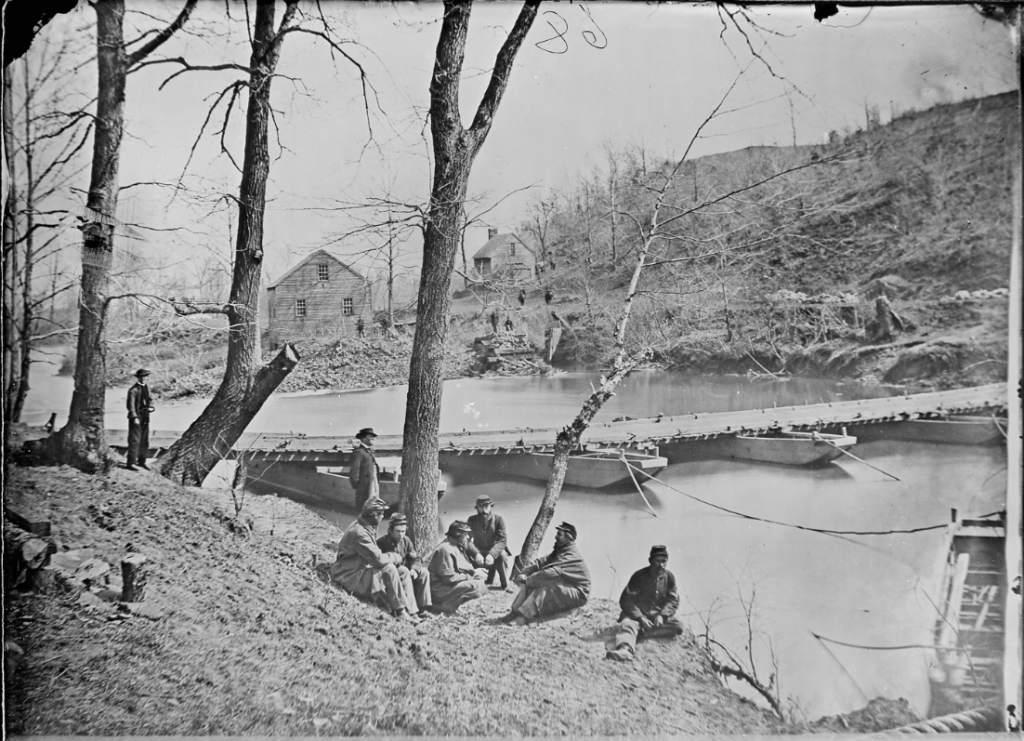
The Battle of Blackburn’s Ford took place on July 18, 1861, in Prince William County and Fairfax County, Virginia, as part of the First Manassas Campaign of the American Civil War. A Union brigade was ordered to probe…
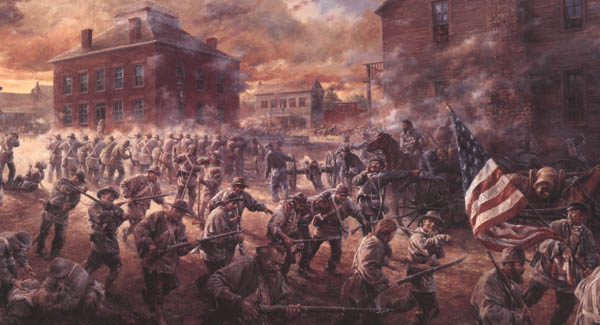
The Battle of Carthage, also known as the Battle of Dry Fork, took place at the beginning of the American Civil War on July 5, 1861, in Jasper County, Missouri. The experienced Colonel Franz Sigel commanded 1,100 Federal soldiers intent on keeping…
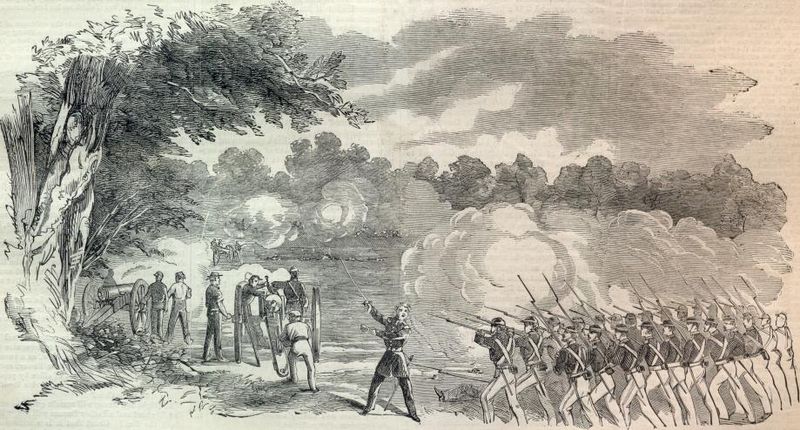
The First Battle of Boonville was a minor skirmish of the American Civil War, occurring on June 17, 1861, near Boonville in Cooper County, Missouri. Although casualties were extremely light, the battle’s strategic impact was far greater than…
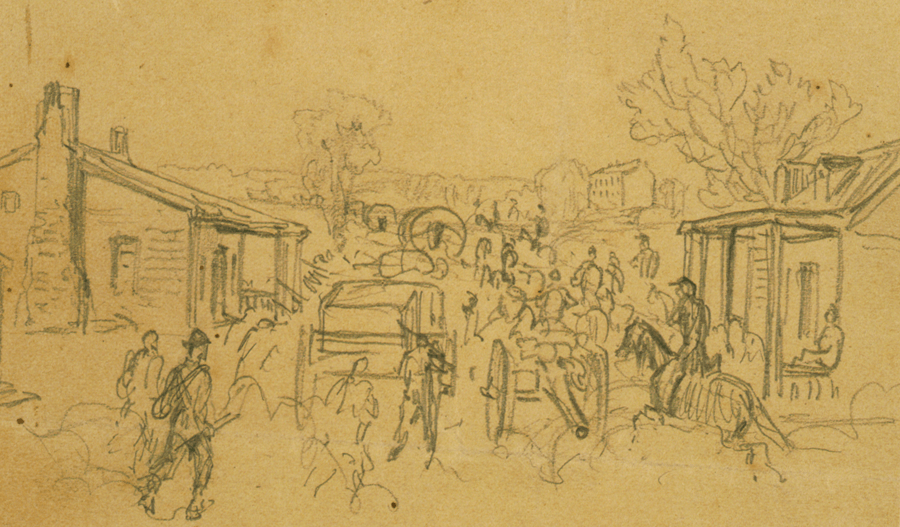
The Battle of Big Bethel, also known as the Battle of Bethel Church or Great Bethel was one of the earliest land battles of the American Civil War (Civil War) after the surrender of Fort Sumter. The battle between Union Army and Confederate States Army forces on…

The Battle of Philippi—also known mockingly as “The Philippi Races”—was fought on June 30, 1861, in and around Philippi, Virginia (now West Virginia) as part of the Western Virginia Campaign of the American Civil War….
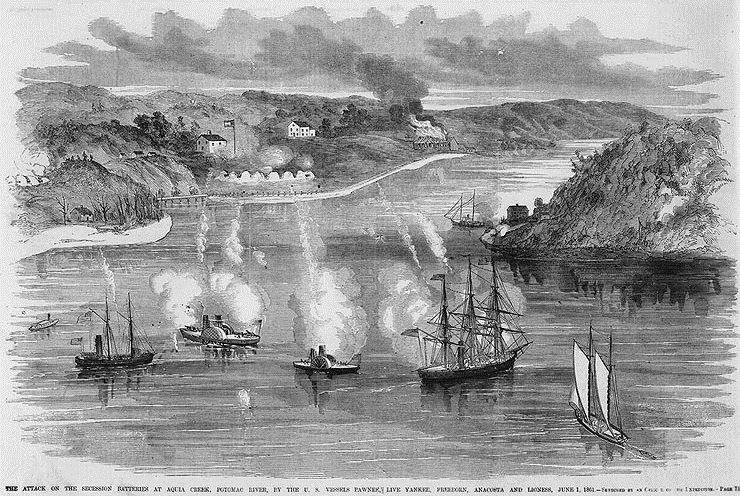
The Battle of Aquia Creek was an exchange of cannon fire between Union Navy gunboats and Confederate shore batteries in Stafford County, Virginia which took place from May 29, 1861 to June 1, 1861 during the early days of the American Civil…

Coordinates: 36°57′17″N 76°19′36″W / 36.95472°N 76.32667°W The Battle of Sewell’s Point was an inconclusive exchange of cannon fire between the Union gunboat USS Monticello, supported by the USS Thomas Freeborn, and Confederate batteries on Sewell’s Point that took place on May 18, 19 and 21, 1861, in Norfolk County, Virginia…
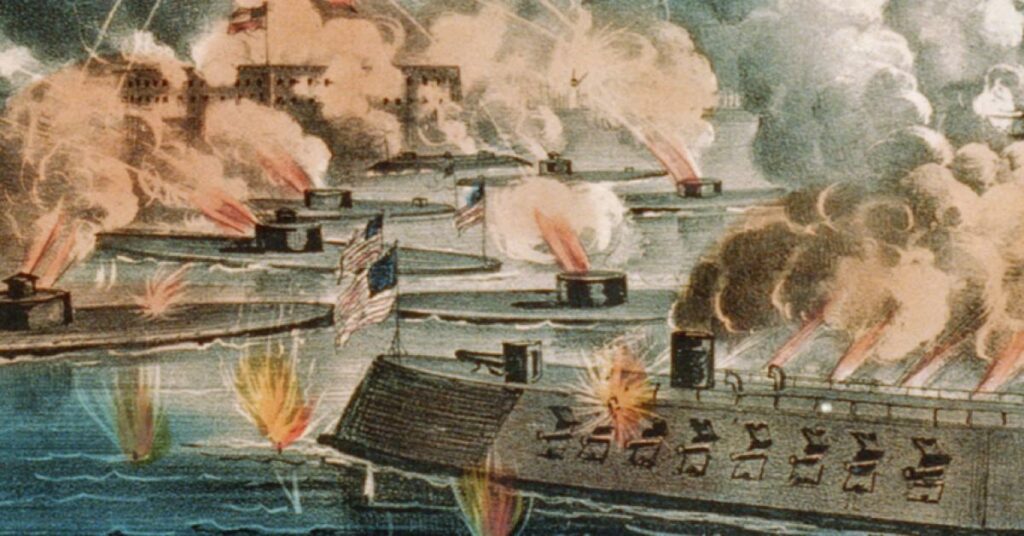
The Battle of Fort Sumter (April 12–14, 1861) was the bombardment and surrender of Fort Sumter, near Charleston, South Carolina, that started the American Civil War. Following declarations of secession by seven Southern states, South Carolina demanded that the U.S. Army…